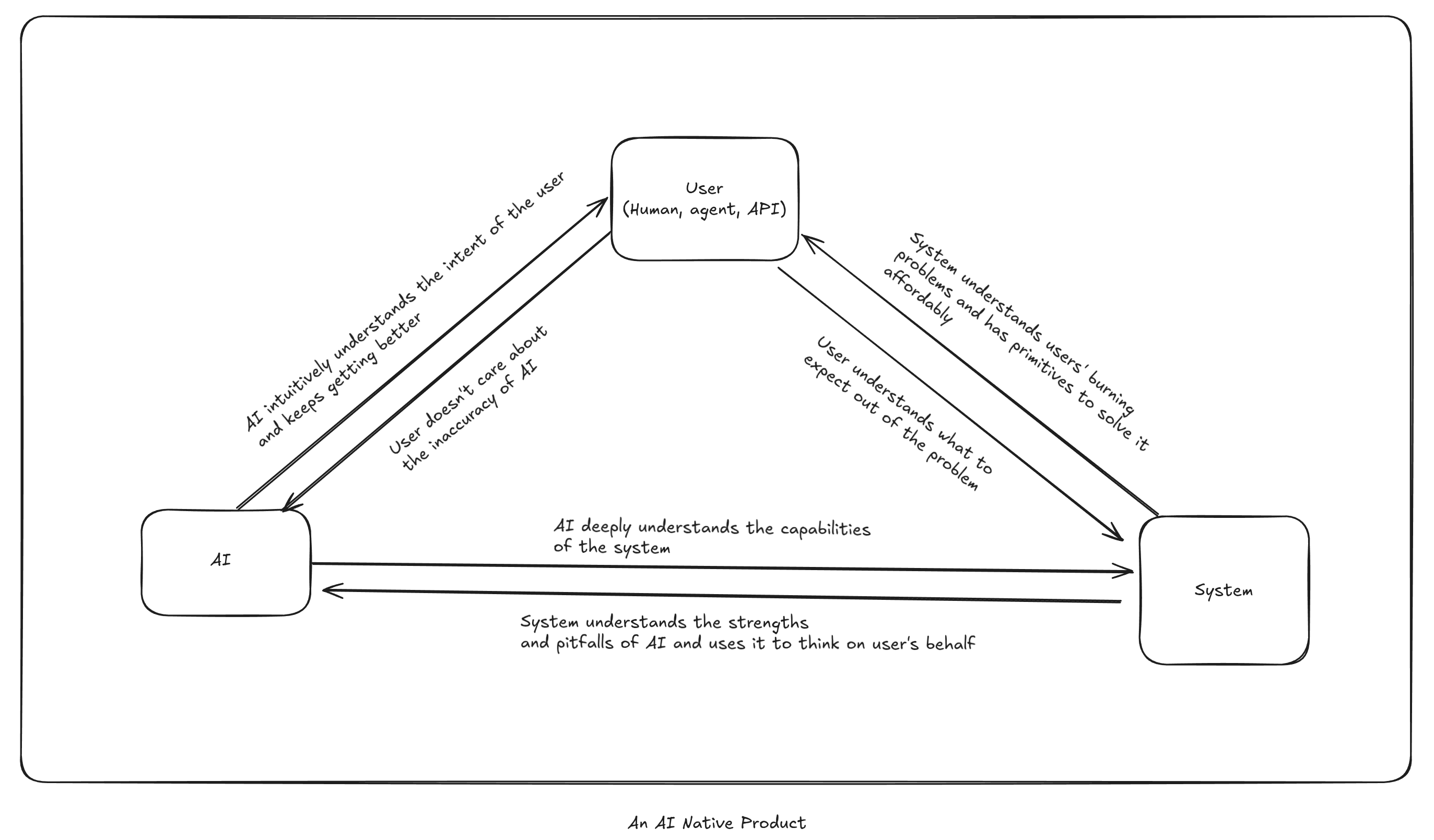Despite $30–40 billion in enterprise investment into GenAI, this report uncovers a surprising result in that 95% of organizations are getting zero return[0]
No surprise. Most AI products suck. They start magical, hallucinate, and get churned. The old “hit the market fast” playbook has gone sideways. The point of shipping fast was always to learn fast. Now it’s about FOMO, being first, and looking relevant. Bound to fail.
Early on, AI looks so good that people rely on it instantly. Then they hit edge cases, watch it collapse, and end up hating the product. The demo is magical; the reality is disaster. Humane’s AI Pin, hyped as the smartphone killer, overheated, drained in hours, and couldn’t do half of what it promised. From “future” to “past” in weeks. Countless more examples, really.
I’m just frustrated watching everyone chase “doing something with GenAI.” Sure, it’s cool tech, but if you’re not solving a real problem, what’s the point? Are we building something we’re proud of, or just trying to stay relevant? There are AI products that actually feel revolutionary, like Cursor, Codex, Perplexity, Otter, and ElevenLabs v3 - true AI native apps that have nailed the baked-in AI experience without making it feel like AI is a layer in the middle somewhere struggling to help. They’ve nailed the loop between the user, the AI, and the system. The AI understands the user’s intent and the system’s capabilities; the system exposes its power to both; and the user just acts intuitively while the AI handles the rest. Not easy, but can be done.

I do believe that we’re nowhere near the peak of what products can be, even with today’s state of large language models, without fine-tuning or specialized training. There’s still so much untapped potential in how we design systems, structure context, and align AI with real user intent. The problem isn’t capability; it’s effort. Very few are building beautiful products; most are just trying to stay ‘relevant’ as soon as possible. That’s not bold, that’s lazy. If you aren’t solving the right problem with a unique insight and a solid solution, you’re just another runner in the same rat race as a thousand AI companies out there. Remember, competition is for losers[1].
The dream, of course, is to drop a product like a bomb, have the world drool over it, call it a revolution. But revolutions take time. After all, what is an AI product? It’s something that reasons on behalf of your users to solve problems importan to them. That means it has to truly understand them, their psyche, their behavior, their data, their motivations. If it doesn’t, it can’t think for them, and it sure as hell can’t work for them.
As consumers, we have to stop chasing magical demos. I believe, at the stage we are in, good AI tools start simple, build understanding and then get magical, instead of starting off being presumptuus and magical and later tanking
A real product has to live with messy data, work with countless humans, capture their minds, suggest ideas, and keep getting sharper with every loop. You can’t yank magic out of your ass and cash it in. Do that, and sure, you’ll dazzle for five minutes. But five weeks later, you’re just another dead demo in someone’s folder called “cool stuff that didn’t work.”.
References
[0] State of AI in Business 2025 Report - https://mlq.ai/media/quarterly_decks/v0.1_State_of_AI_in_Business_2025_Report.pdf
[1] Peter Thiel: Competition Is for Losers - https://www.csun.edu/~vcact00f/497CapStone/Peter%20Thiel_%20Competition%20Is%20for%20Losers%20-%20WSJ.pdf